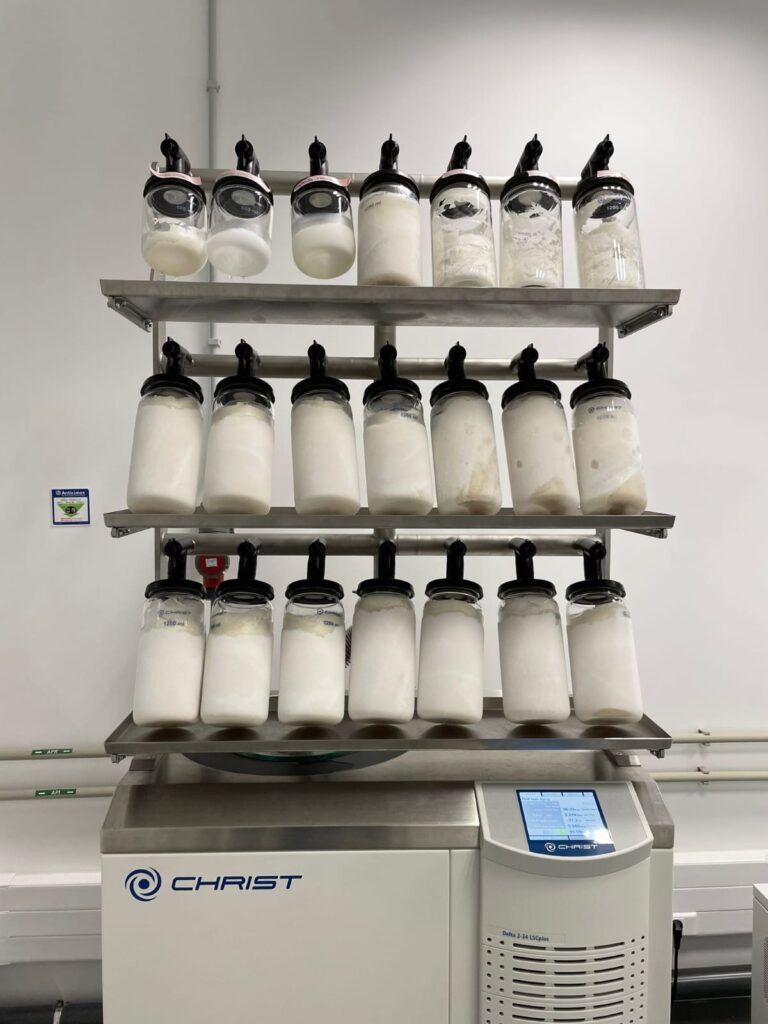Portuguese Biotech Startup Bags $15M to Bring Infant Formula Nutritionally Closer to Breast Milk
3 Mins Read
Portuguese startup CarboCode, which is producing human-identical breast milk molecules via biocatalysis and fermentation, has raised $15M from investors.
Based in Cantanhede, Portugal, biotech player CarboCode has closed a €15M ($15.3M) Series C funding round led by Iberis Capital.
The company has developed a proprietary tech platform for the large-scale production of human-identical breast milk lipids and molecules to supercharge the nutritional attributes of infant formula. Naturally present in breast milk and organ membranes, they are vital for cognition, inflammation control, and gut health.
It will use the funds to launch a new manufacturing facility, hire researchers take its staff count past 50, and secure regulatory approvals in the US, Europe, and China.
Targeting gut health and brain function benefits for infants

Founded by Ferenc Horvath and Jorge Santos in 2017, CarboCode is based at the Biotechnology Innovation Center in Biocant Park, Cantanhede, and specialises in the production of human-identical glycosphingolipids (GSLs) and gangliosides. It also has a research centre in Konstanz, Germany.
GSLs play a critical role in brain development and cognitive function in infants, and breast milk has been found to be a better source of these lipids than commercially available baby formula.
Gangliosides, meanwhile, regulate cell signalling and are crucial in the maturation of the central nervous system. They protect against immune attacks, and support a balanced immune response and healthy gut microbiome. These too, however, are largely absent from conventional infant formula products.
CarboCode synthesises these molecules in their natural form by combining proteins and metabolic engineering with biocatalysis and fermentation.
In 2022, it invested €45M to build a new industrial factory in the Cantanhede industrial park, which will be able to produce 100 tonnes of gangliosides every year when it begins operating in 2029. The investment was part of an €80M drive to accelerate commercialisation, with the rest allocated for R&D.
“Access to human-identical gangliosides presents a rare opportunity to make a real positive impact on people’s lives,” said Santos, who is the firm’s CEO. “CarboCode’s technologies enable the production of these compounds, driving our commitment to making this dream a short-term reality.”
CarboCode expects turnover north of €100M by end of decade

The B2B startup’s initial product line will focus on the absence of gangliosides in formula, and it says it will supply ingredients to industry giants like Danone, Nestlé, Abbott, and Mead Johnson.
The infant formula market is set to surpass $84B by 2029, by which time, CarboCode expects to have an annual turnover exceeding €100M ($102M). But beyond infant nutrition, the startup is also aiming to target cosmetics, dermatology, and cognitive health.
As a company producing human-identical breast milk molecules through biotechnology, it would need to pass stringent regulatory checks before coming to market. The latest capital injection will help the company do so, with an aim to secure approval in the EU and the US by 2027, and China by 2028.
Most of the world’s 130 million babies born annually are fed infant formula at some point. Research has shown that about 5-10% of women are physiologically unable to breastfeed, but many more say they’re not producing enough or have nutritional deficiencies in their milk.
While some startups are making vegan baby formula, several others are working on fermentation-derived breast milk ingredients, including Yali Bio, Checkerspot, and The Live Green Co (all of which are working on fats). Nūmi, meanwhile, is developing cultivated breast milk with as many constituents as possible),
Others are banking on lactoferrin, the iron-regulating whey protein found in human milk and bovine colostrum just after birth. While 60% of its supply goes to infant nutrition, it’s a highly expensive ingredient, prompting startups like Wilk to work on a cell-cultured version, and a host of others – such as Helaina, TurtleTree, De Novo Foodlabs, Triplebar Bio, and Daisy Lab – to leverage precision fermentation to produce the protein.



